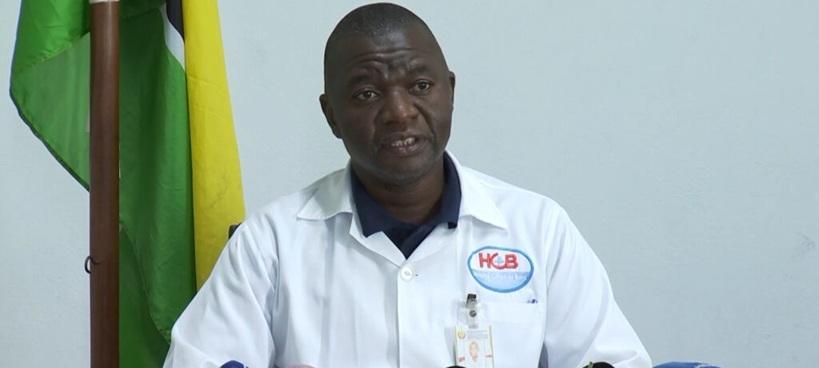Africa-Press – Mozambique. There is a long list of patients waiting to undergo surgery at the Beira Central Hospital, due to the constant increase in the population and the lack of specialists capable of meeting the demand for health services.
The limited access to health services in the city of Beira became even more complicated between October last year and the beginning of March this year, due to the demonstrations, which restricted the movement of medicines in the country. To deal with these long waiting lists, the government urged all central hospitals to perform mass surgeries within the first 100 days of the new government cycle. Thus, at the Beira Central Hospital, the target was for 100 surgeries in ten days. In fact, a team of 97 health professionals operated on 317 patients. In orthopaedics, 52 patients were operated on.
“The patients who underwent surgery mostly had pathologies related to fractures of the lower limbs, where osteosynthesis of the lower limbs was performed,” said Nelson Mucopo, director of the Beira Central Hospital. “Osteosynthesis is the placement of metal splints in the bones in order to stabilize the fractures and make them consolidate more quickly. These were the majority of the orthopaedic pathologies operated on. In general surgery, 261 patients were operated on. In general surgery, we operated on more patients with inguinal hernias, patients with hydrocele, which is the accumulation of water in the scrotum, patients with anorectal pathologies, with the emphasis on haemorrhoids and perianal fistulas, patients with goitre, and some patients with breast tumours.”
At the Beira Central Hospital, more than 300 complaints were filed last year about alleged poor care and six about illegal charges linked to surgery.
“Unfortunately, the values we had are being eroded and these people who are involved in this erosion of the social fabric are also here in the hospitals. These are the people who exhibit subversive behaviour, which promotes poor care and illegal charges. Unfortunately, our colleagues, the health professionals, also come from society. We had a situation in which a colleague charged a patient for surgery. The patient was not even operated on because he had paid, but because of other situations,” Mucopo said.
Mucopo also explained that “the companion came to file the complaint and, at this moment, we are attempting disciplinary and criminal proceedings in light of this situation, in addition to other issues that have occurred. Therefore, it is a situation in society that we all have to fight to see if we can mitigate the problem”.
As it did in December of last year, Beira Central Hospital has once again expressed concern regarding traffic accidents involving motorcycle taxis.
“Even though the Ministry of Health manages to provide the hospital with equipment to support these patients, we continue to be heavily overloaded, since the number of patients continues to increase. Not only does it continue to increase, these types of accidents mean that patients have to stay in hospital for a long time. If patients stay in hospital for a long time, it means that they monopolise a lot of medical and surgical equipment. So, it is a very worrying situation. These are patients that we receive, but we have information that many do not even make it to the hospital, they end up dying on the street, as a result of these traffic accidents.”
‘O País’ spoke to a patient who, in June last year, suffered a stroke and only underwent surgery last week, as part of the mass surgery campaign.
“It has already been nine months since the accident. There are people who have been waiting for almost one or two years for surgery, but thank God they are at last being operated on,” she said.
The director of the Beira Central Hospital concluded by calling for greater commitment to road inspections from the authorities.
For More News And Analysis About Mozambique Follow Africa-Press






